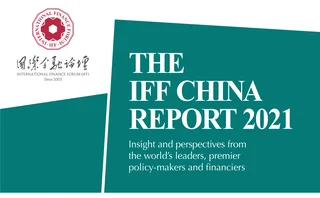
Sharing the load


The Covid-19 pandemic has driven home the three planetary crises that threaten our economies and societies. The climate crisis, the biodiversity and nature crisis, and the pollution and waste crisis have been driven by decades of unsustainable consumption and production, and are destroying the natural systems upon which our health and prosperity depend. As we confront Covid-19, it is important to act faster on previous commitments made to the planet and make new ones, followed up by swift action. These are steps in the right direction, particularly on the climate crisis.
At the UN General Assembly in September 2020, President Xi Jinping announced China’s pledge to hit peak carbon emissions by 2030 and reach carbon neutrality by 2060. But, to achieve this – and other sustainability goals – public and private finance must back these commitments.

Public money can come in the form of pandemic recovery packages. Stimulus funds must go towards zero carbon, nature-positive and pollution-free societies and economies. They must fuel the energy transition, a healthy planet and green jobs. But private capital needs to do its share of the heavy lifting. Some finance industry leaders have got the message. Alliances are forming and money is shifting. But action should be more urgent. We need trillions of dollars of investments to retool the global economy.
To accelerate action and make every investment count, the UN Environment Programme (UNEP) is promoting four key actions:
1. The finance sector needs to better measure and communicate its impact – both the positive outcomes of financing, such as emissions reductions, and the negatives, such as biodiversity loss or human rights violations.
2. Financiers must set comprehensive sustainability targets that align entire portfolios with the UN’s 2030 Sustainable Development Goals, the Paris Agreement on climate change and other international agreements. Two target frameworks with which UNEP is pleased to be involved are the Net-Zero Asset Owner Alliance and the Principles for Responsible Banking. Four Chinese banks – the Industrial and Commercial Bank of China, China Industrial Bank, Huaxia Bank and the Bank of Jiujiang – have already signed up to the Principles.
3. Financial institutions need to follow the science when setting timetables for net zero emissions in their portfolios. The Net-Zero Asset Owner Alliance, for example, worked with prominent scientists to set appropriate intermediate targets to realign portfolios by 2050.
4. Institutions should prove they are making good on their commitments through transparency. The Principles require third-party review on signatories’ annual reporting. This kind of transparency creates credibility.
The planet needs the finance industry, but the finance industry must understand it needs the planet more. Investing in low-carbon societies and healthy natural systems is the only way to ensure long-term profitability. As China and others gear up their carbon-neutrality plans, all banks and investors should mobilise their capital in support of a greener, healthier and more prosperous future.
This article is based on the virtual speech delivered by Inger Andersen at the 2020 Global Green Finance Summit during the International Finance Forum 2020 Annual Meeting (F20 Summit) on November 22, 2020 in Guangzhou, China.
Only users who have a paid subscription or are part of a corporate subscription are able to print or copy content.
To access these options, along with all other subscription benefits, please contact info@centralbanking.com or view our subscription options here: http://subscriptions.centralbanking.com/subscribe
You are currently unable to print this content. Please contact info@centralbanking.com to find out more.
You are currently unable to copy this content. Please contact info@centralbanking.com to find out more.
Copyright Infopro Digital Limited. All rights reserved.
As outlined in our terms and conditions, https://www.infopro-digital.com/terms-and-conditions/subscriptions/ (point 2.4), printing is limited to a single copy.
If you would like to purchase additional rights please email info@centralbanking.com
Copyright Infopro Digital Limited. All rights reserved.
You may share this content using our article tools. As outlined in our terms and conditions, https://www.infopro-digital.com/terms-and-conditions/subscriptions/ (clause 2.4), an Authorised User may only make one copy of the materials for their own personal use. You must also comply with the restrictions in clause 2.5.
If you would like to purchase additional rights please email info@centralbanking.com



